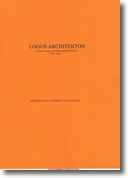Some remarks on "Remarks..." (Wittgenstein's Gödelian Argument)
Some remarks on "Remarks..." (Wittgenstein's Gödelian Argument)
Author(s): Virgil DrăghiciSubject(s): Philosophy
Published by: Presa Universitara Clujeana
Keywords: paradoxes; diagonalization; Gödel's theorems; Wittgenstein; T-computability; Kleene; constructive truth
Summary/Abstract: The purpose of this paper is to make a critical analyse of the Wittgenstein's argument regarding his rejection of the existence of a true but unprovable sentence in PA. The section 1 does make explicit the way in which Gödel's first incompleteness theorem is analogous to paradoxical constructions (Richard's paradox and the Liar), via Cantor's diagonalization (1.1), and a review of proofs of Gödel's theorems (1.2). It is argued that Wittgenstein's rejection of Gödel's results is essentially based on his finitism (constructivism) conjugated with the thesis that the meaning of an expression is given by its use in a calculus (2.1). The consequences of this stance are the identification of "true" with "proved" and the rejection of the existence of meta-mathematics. These are finally responsible for Wittgenstein's rejection, in § 8 of his Remarks..., of the existence of a true but not provable sentence in PA (2.2). In the section 3 we are looking for a sense in which a constructive notion of truth can be given. This is considered in terms of Turing computability, but whose consequence, concerning Gödel's sentence, is that the idea of constructive truth does not coincide with the idea of truth given computationally.
Journal: Logos Architekton. Journal of Logic and Philosophy of Science
- Issue Year: 5/2011
- Issue No: 01
- Page Count: 1
- Language: English

